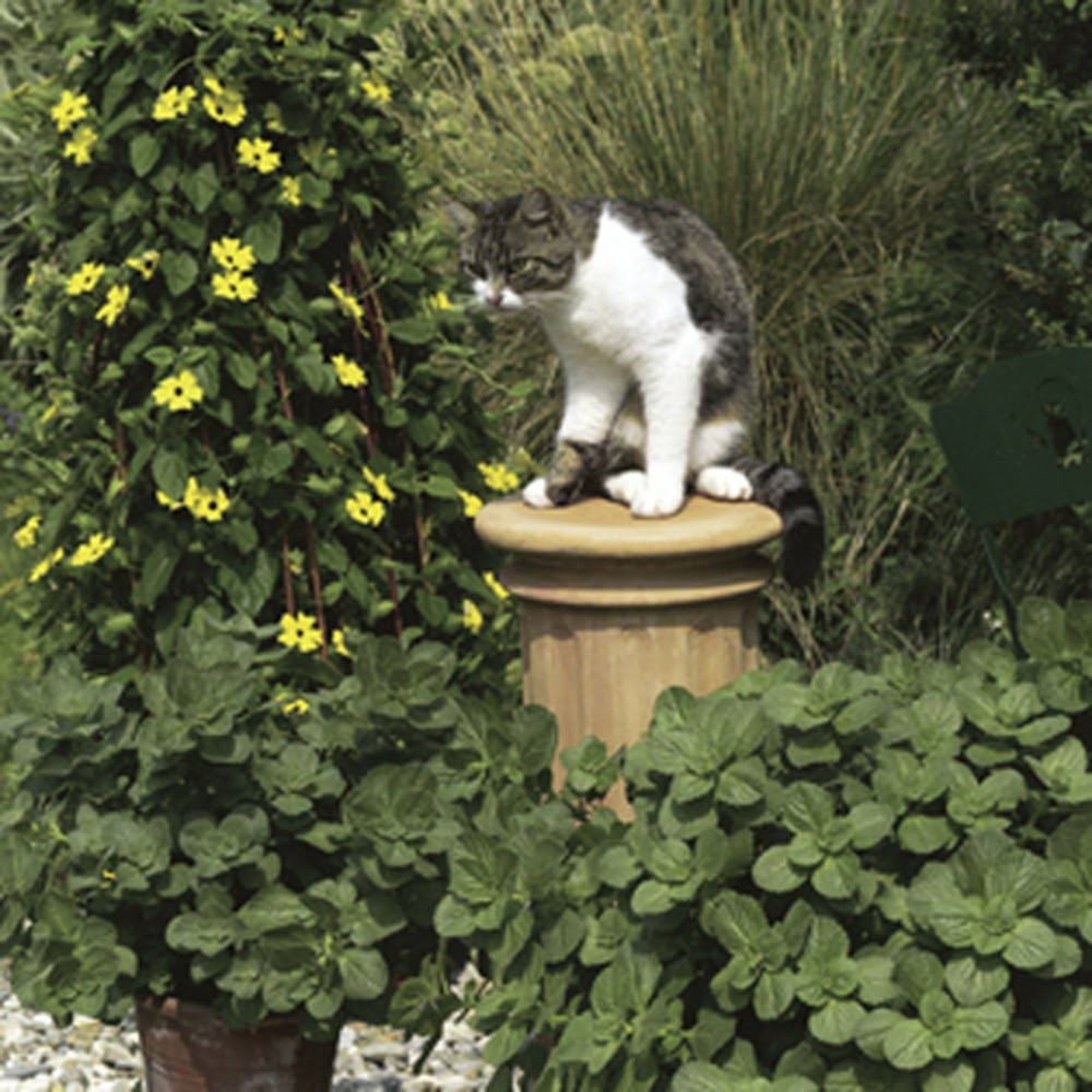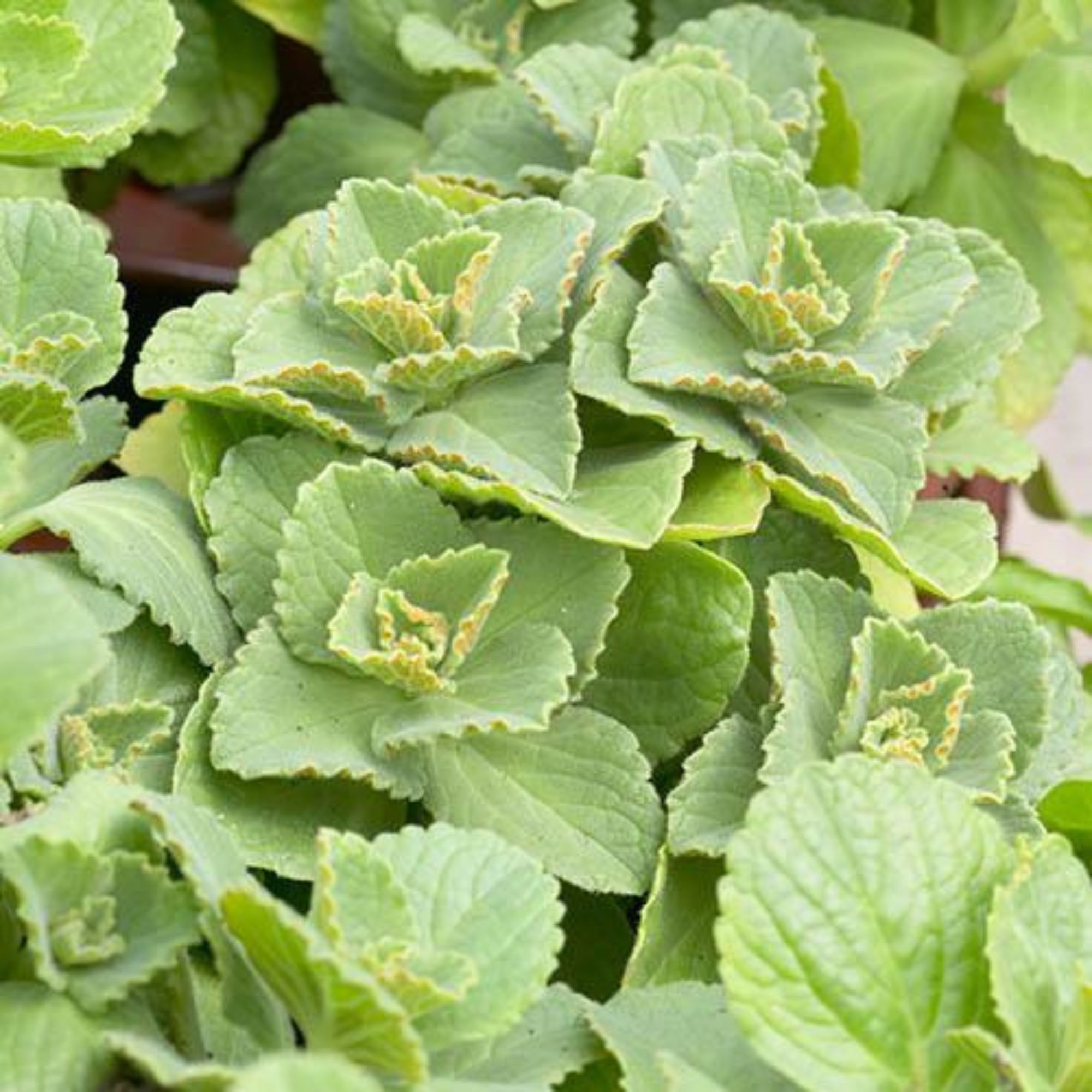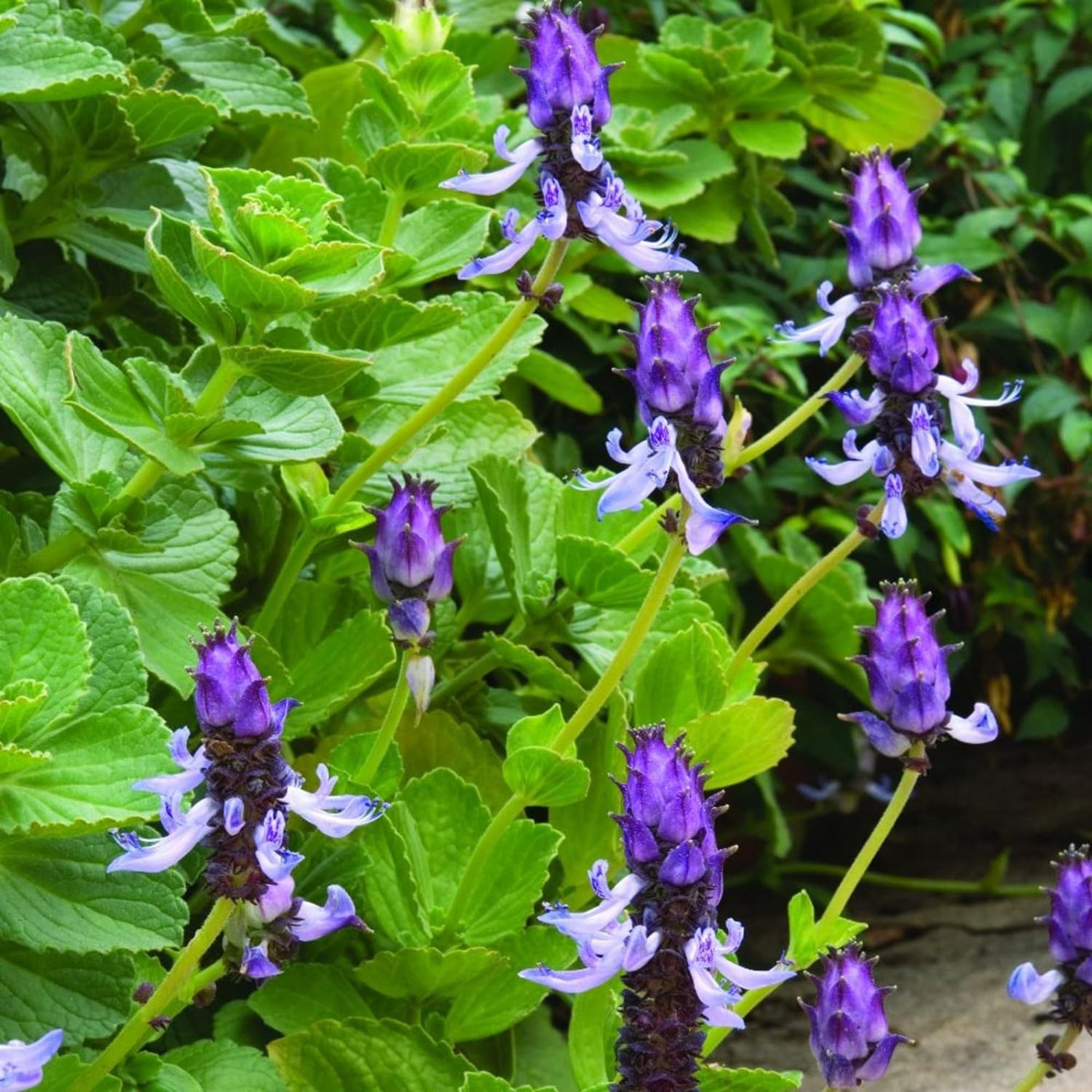Cats pooping in your garden? The ‘scaredy cat’ plant could be the answer to all of your problems
Meet the 'scaredy cat' plant that'll keep cats out of your garden for less than £1.50 per plant

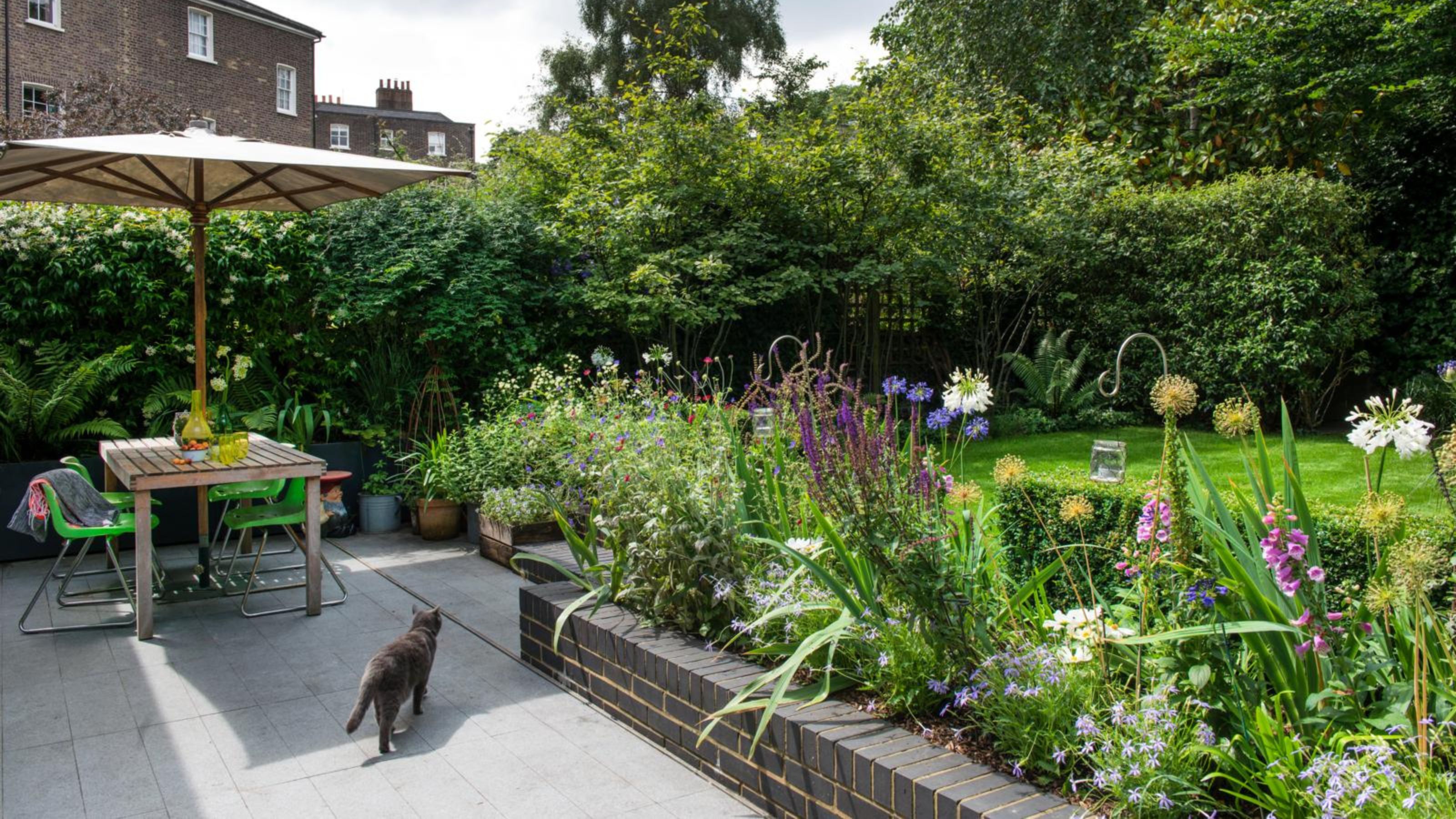
We love cats as much as the next guy (who really loves cats), but there’s no denying that our furry friends can be a nuisance in the garden. And if you’ve accidentally stepped on more cat poop than you’d like to admit, we’d like to introduce you to the scaredy cat plant.
Yep, there’s nothing more annoying than seeing your garden ideas ruined by a cat. They'll double-check their claws are still working in your recently planted garden borders, and they'll also use your fresh fruit and vegetable patch as their own personal litter box. And as cat poo is extremely high in nitrogen (to the point where it can actually burn your plants), it’s important to know how to stop cats pooping in your garden.
Of course, most people don’t have the time or the energy to spend their days on cat watch, clapping every time they see one of these four-legged friends enter the garden. And that’s where a cheap plant by the name of Coleus caninus can help.
The scaredy cat plant
As someone who lives on a street full of cats, I know better than most just how irritating cats can be. Sure, they’re super cute, but they also spend their days terrorising my dog and leaving little (and sometimes very big) brown presents on my lawn, in my flowerbeds, and even on my patio. And in an effort to save my beloved garden from harm, I stumbled across the scaredy cat plant.
Officially named Coleus caninus, the scaredy cat plant is a herb from the mint family that offers beautiful green leaves and stunning blue and purple spire flowers - not too dissimilar to lavender. But the main perk of this plant is that it’s said to keep cats at bay.
John Clifford, gardening expert at Gardenstone, explains, ‘The scaredy cat plant (Coleus caninus) deters cats as it has a smell that cats supposedly find unpleasant. Therefore, having this plant in your garden is meant to prevent cats from coming into your garden.’
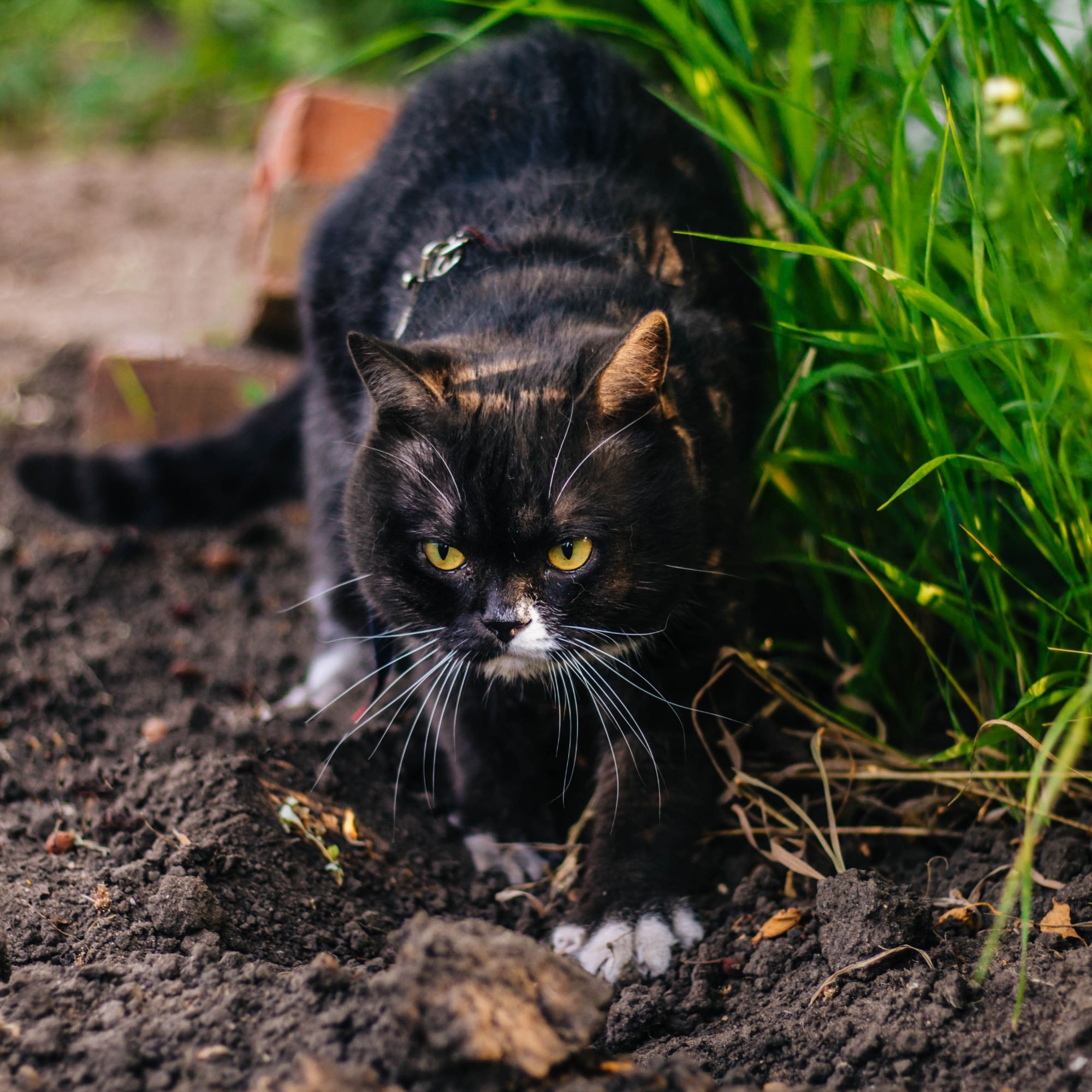
‘One major benefit of using the scaredy cat plant to deter cats instead of any other method is that this is a natural deterrent. Chemical deterrents can be incredibly dangerous, not only to the cats that come into your garden but to other wildlife and plants.’
Sign up to our newsletter for style inspiration, real homes, project and garden advice and shopping know-how
‘Another major benefit is the fact that using the scaredy cat plant as a deterrent is a cheap option that will only need to be planted once. Other deterrents may need constant re-application, whereas the scaredy cat plant is a one-time investment that will provide continual results.’
In fact, you can pick up a pack of 12 scaredy cat plug plants from B&Q for just £16.99, meaning each plant will cost you less than £1.50.
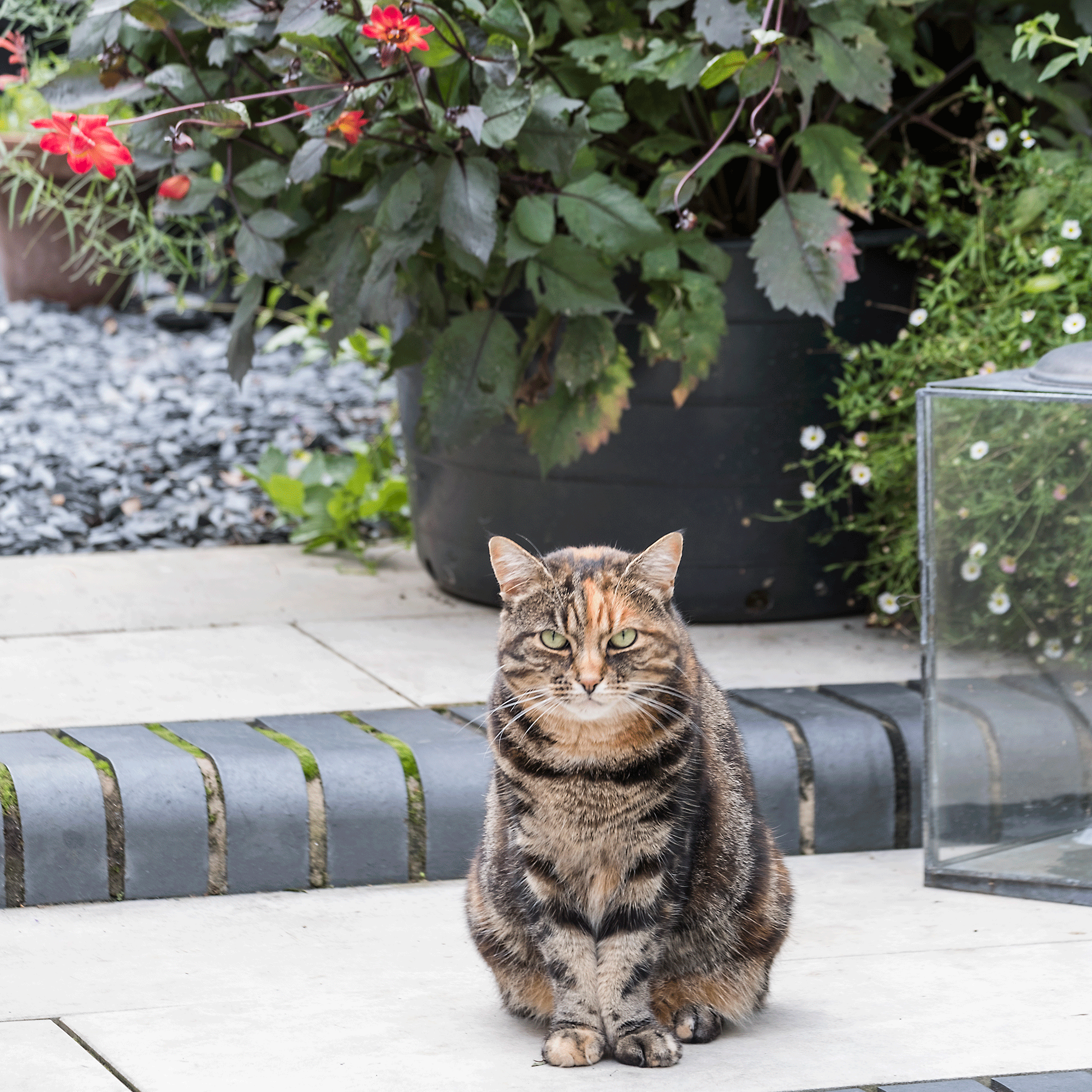
Your best bet is to plant them in pots as part of your container garden. This allows you to move them around the garden to deter as many cats (and their bowel movements) as possible. It also means that you can move the frost-sensitive plants under cover when the colder temperatures come around.
But that’s not all. Calum Maddock, gardens expert at HomeHow.co.uk suggests, ‘Make sure to put the pots in a sunny spot to warm the foliage and magnify the smell. This also allows you to move the plant if cats change their entry point to your property. Hopefully, they will eventually give up and find an easier place to hang out.’
Plus, it’s best to plant Coleus caninus between March and June - which means that now is the prime time to get your natural cat repellant in place.
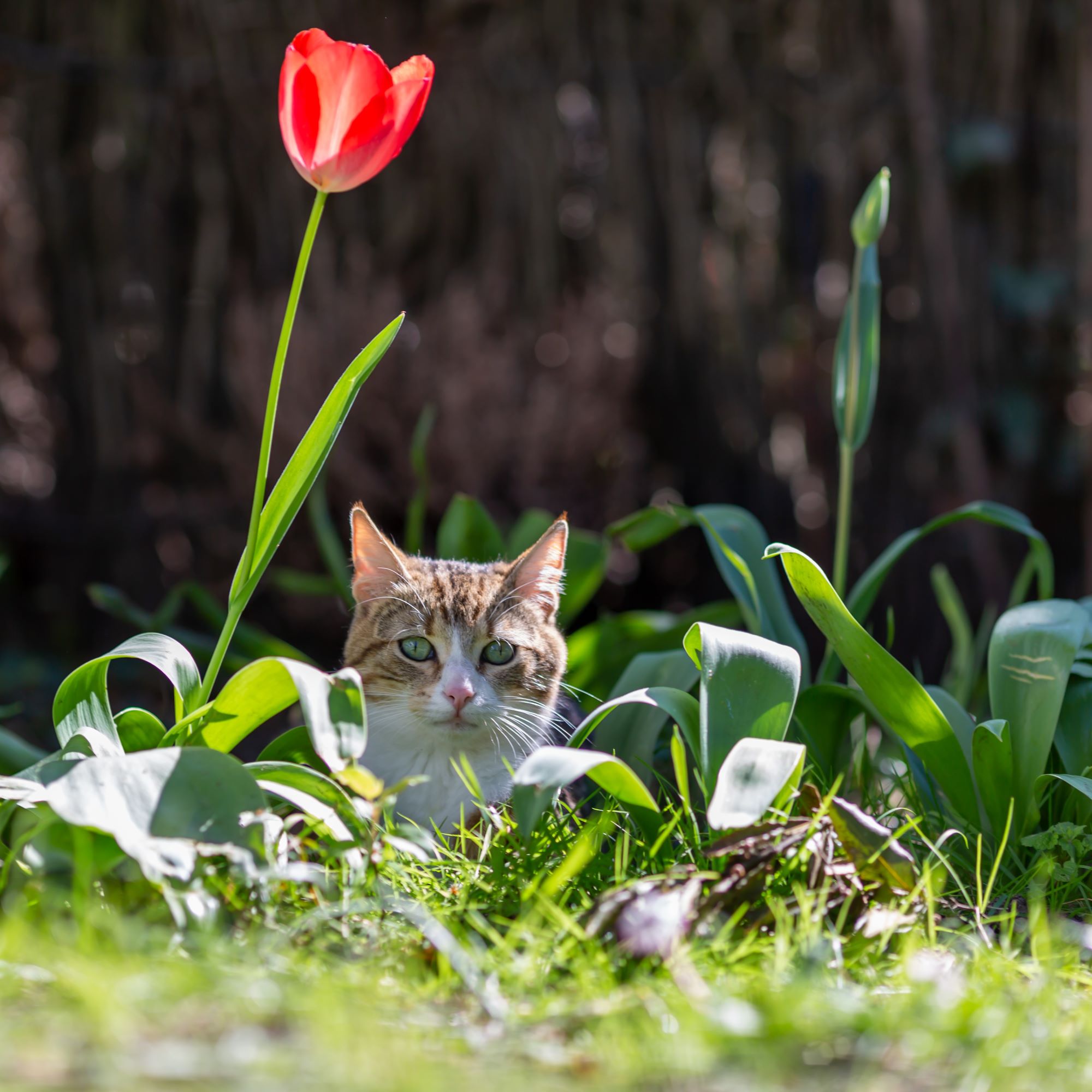
However, it’s important to note that the scaredy cat plant isn’t 100% effective. Experts suggest that it will only deter around two-thirds of all cats, as certain behavioural factors will also impact the cats that come and go from your garden.
Dr Linda Simon, Team Vet at Pooch & Mutt, explains, ‘This plant is known to be a deterrent to cats, who dislike its natural aroma. It can help to some extent but won't always be effective at keeping cats out of the garden. This is especially true if a cat is used to coming to the garden and sees it as part of their territory.’
‘For those who really do not want cats, they might consider this plant alongside other deterrents such as wet soil, prickly brushes and shouting or clapping whenever the cat arrives in. People should also avoid leaving any food out (bird feed, for example), as this can attract cats.’
FAQs
What does scaredy cat plant smell like?
As the scaredy cat plant is a member of the mint family, you might assume that it smells like mint. However, that’s not the case at all.
Some have noted that the scaredy cat plant smells like dog urine, while others have stated that it smells like gone-off eucalyptus. Whatever the case, it doesn’t smell pleasant.
Although cats can smell this all the time, humans can only really smell the scaredy cat plant when it’s touched or bruised. Because of this, it shouldn’t be too much of an issue to have in your garden.
Is scaredy cat plant poisonous to dogs?
As the smell of the scaredy cat plant is so pungent, dogs will also steer clear of it and avoid it at all costs. For this reason, you don’t have to worry too much about your dog getting too close to it.
If your dog’s inquisitive nose does take it to the plant, you’ll be happy to know that it’s not poisonous. However, it can cause mild irritation and stomach upset, so just keep an eye on your dog if it gets too close.
So, if you want to stop cats pooping in your garden, it’s time to scare them off with the scaredy cat plant!

Lauren Bradbury has been the Content Editor for the House Manual section since January 2025 but worked with the team as a freelancer for a year and a half before that. She graduated with a Bachelor’s degree in English and Creative Writing from the University of Chichester in 2016. Then, she dipped her toe into the world of content writing, primarily focusing on home content. After years of agency work, she decided to take the plunge and become a full-time freelancer for online publications, including Real Homes and Ideal Home, before taking on this permanent role. Now, she spends her days searching for the best decluttering and cleaning hacks and creating handy how-to guides for homeowners and renters alike, as well as testing vacuums as part of her role as the Ideal Home Certified Expert in Training on Vacuums, having spent over 110 hours testing different vacuum models to date!
